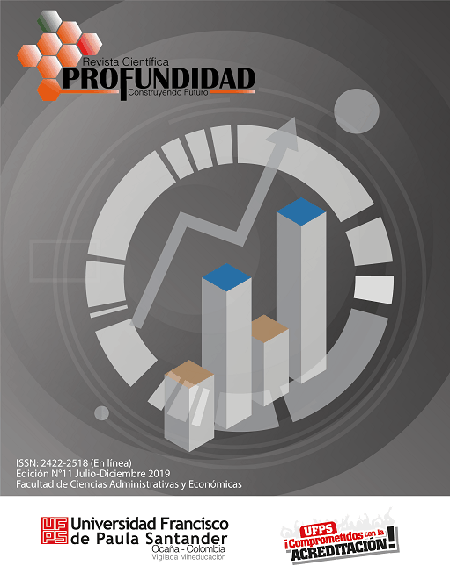Social-family development: integral culture for the formation of the children of the zero program always in the municipality of Pamplona
Desarrollo socio-familiar: cultura integral para la formación de los hijos del programa de cero a siempre del municipio de Pamplona
Contenido principal del artículo
The research makes it possible to recognize the judgments of the users who are enrolled in the zero to always family modality and, in turn, establish the relationship they give to the program in the training of their children. The use of qualitative research for this proposal contributes or it establishes the relationship of describing and giving points of view to problems of the social educational and experiential context, the primary objective was to determine the degree of use by users of the program from zero to always family modality, in the municipality of Pamplona. It can be said that the application of this research contributes in part to diagnosing from a personal point of view the impact generated by the program in the training of minors, evidencing in it the theoretical, political and real positions in order to make them aware of the importance of training of children. The instruments used for families in certain rural areas who are the objects of study were semi-structured interviews; validated by experts from the area, they managed to produce key information for the analysis and triangulation. Thanks to the analysis units and the categories established in the interview, it was possible to focus and provide solutions to the objectives set, demonstrating the perception that the beneficiaries of the program of zero They always have in relation to the operation in rural areas of Pamplona. With the information obtained it is clear to establish the conformity of the operation of the program in terms of the role of care for families, the training of minors and the integration of society is thus how the show is getting on the right tide.
Descargas
Datos de publicación
Perfil evaluadores/as N/D
Declaraciones de autoría
- Sociedad académica
- Universidad Francisco de Paula Santander
- Editorial
- Universidad Francisco de Paula Santander
Detalles del artículo
Freire Paulo. La Educación como práctica de la Libertad. Editorial Tierra Nueva, Uruguay, Segunda edición. (1970)
Lucia Beltrán Álvarez. La estimulación temprana influye en el desarrollo socio-afectivo de niñas y niños de 0 a 24 meses de los centros de desarrollo infantil de la fundación ecuatoriana de desarrollo humano calderón. Quito Ecuador, 2011.
Elena Villa Mónica. Barreales Estela. Brandon María Inés. Rol de la familia en la formación integral de sus hijos. Rio de landaburu 2010. venado tuerto II. Argentina.
Rosa Elena y Montes Rotela Maribel El artículo de investigación denominado influencia de la familia en el proceso educativo de los menores del barrio costa azul de Sincelejo (Colombia) Espitia Carrascal. Investigación y desarrollo vol. 17, n° 1 (2009) - issn 0121-3261
La Convención Internacional de los Derechos del Niño, aprobada por la Asamblea General de las Naciones Unidas el 20 de noviembre de 1989, la Ley de Infancia y adolescencia, 2006.
Programa de investigación AEF - Dpto. de Física – Facultad de Ingeniería - Universidad Nacional del Comahue - Consejo Provincial de Educación de Neuquen.
Giordán, A., de Vecchi, G Los orígenes del saber. De las concepciones personales a los conceptos científicos. Díada. Sevilla. (1988)
Organización Panamericana de la Salud, Organización Mundial de la Salud (2007). La renovación de la atención primaria de salud en las Américas. Washington: OPS.
Osorio, Esperanza (2009). Consideraciones iniciales para la construcción de una propuesta de educación para la recreación. Bogotá: Ediciones
Párraga Alarcón, Constanza Liliana. Estrategia de atención integral a la primera infancia. Fundamentos Políticos, Técnicos y de Gestión Bogotá D.C., Colombia (2013)
Quiñones S Iván Darío. Comisión Intersectorial de Primera Infancia Atención Integral: Prosperidad para la Primera Infancia Comisión Intersectorial de Primera Infancia Versión actualizada octubre de 2012
González Río, M.J. Metodología de la investigación social. Técnicas de recolección de datos: Aguaclara. (1997).
Hernández Sampieri, Roberto, Fernández Collado, Carlos y Baptista Lucio, Pilar. Metodología de la investigación. México: Mc Graw Hill. (1998).












